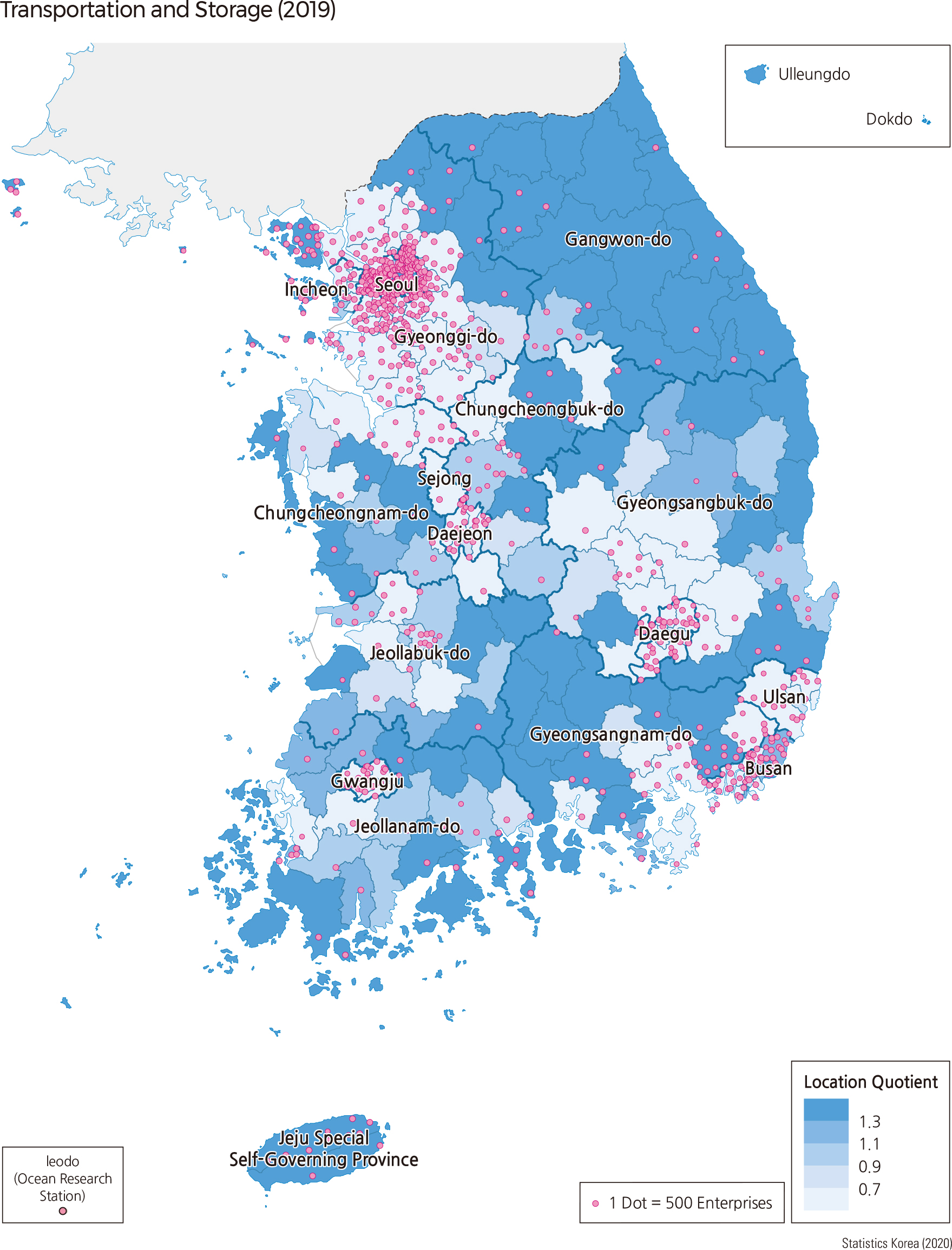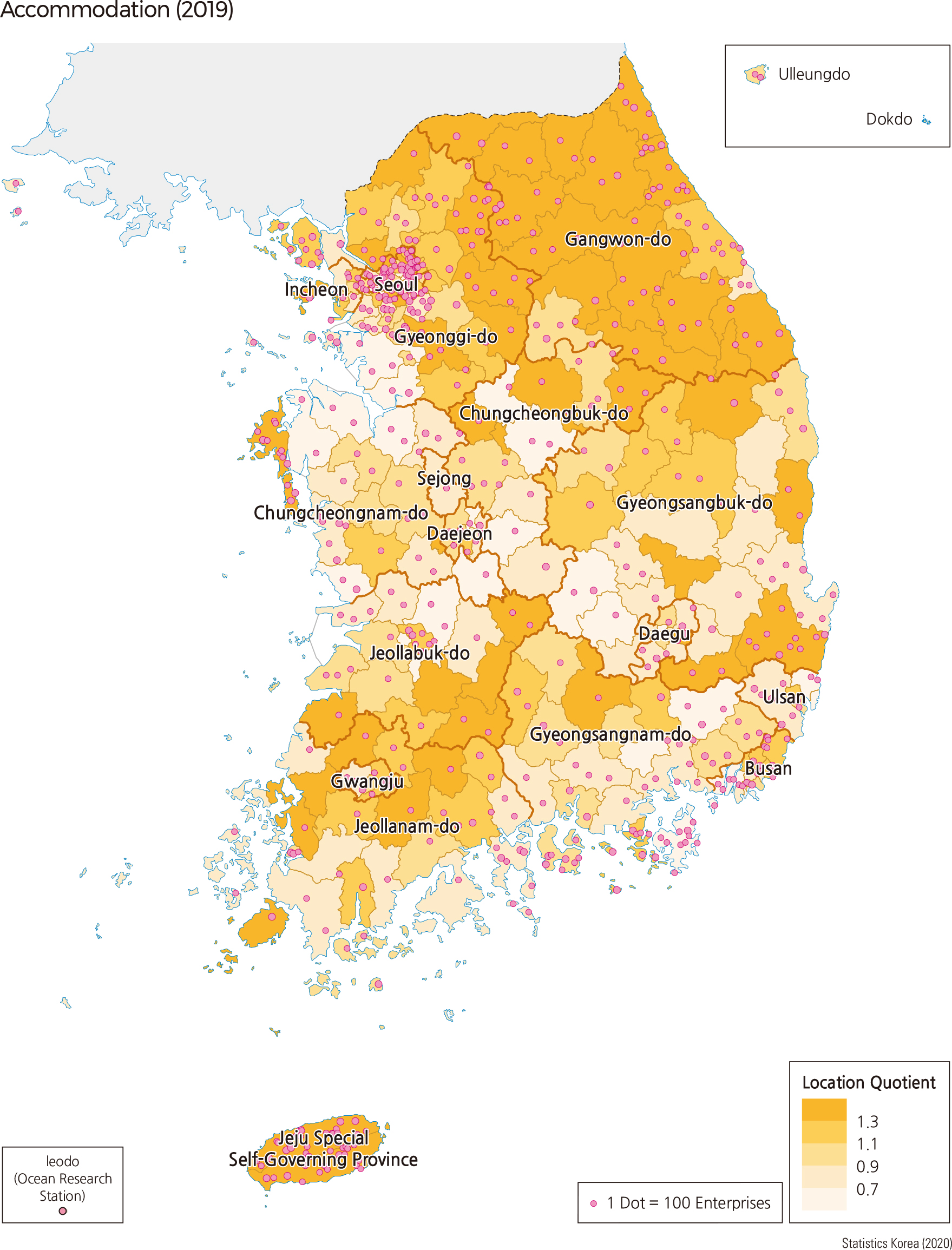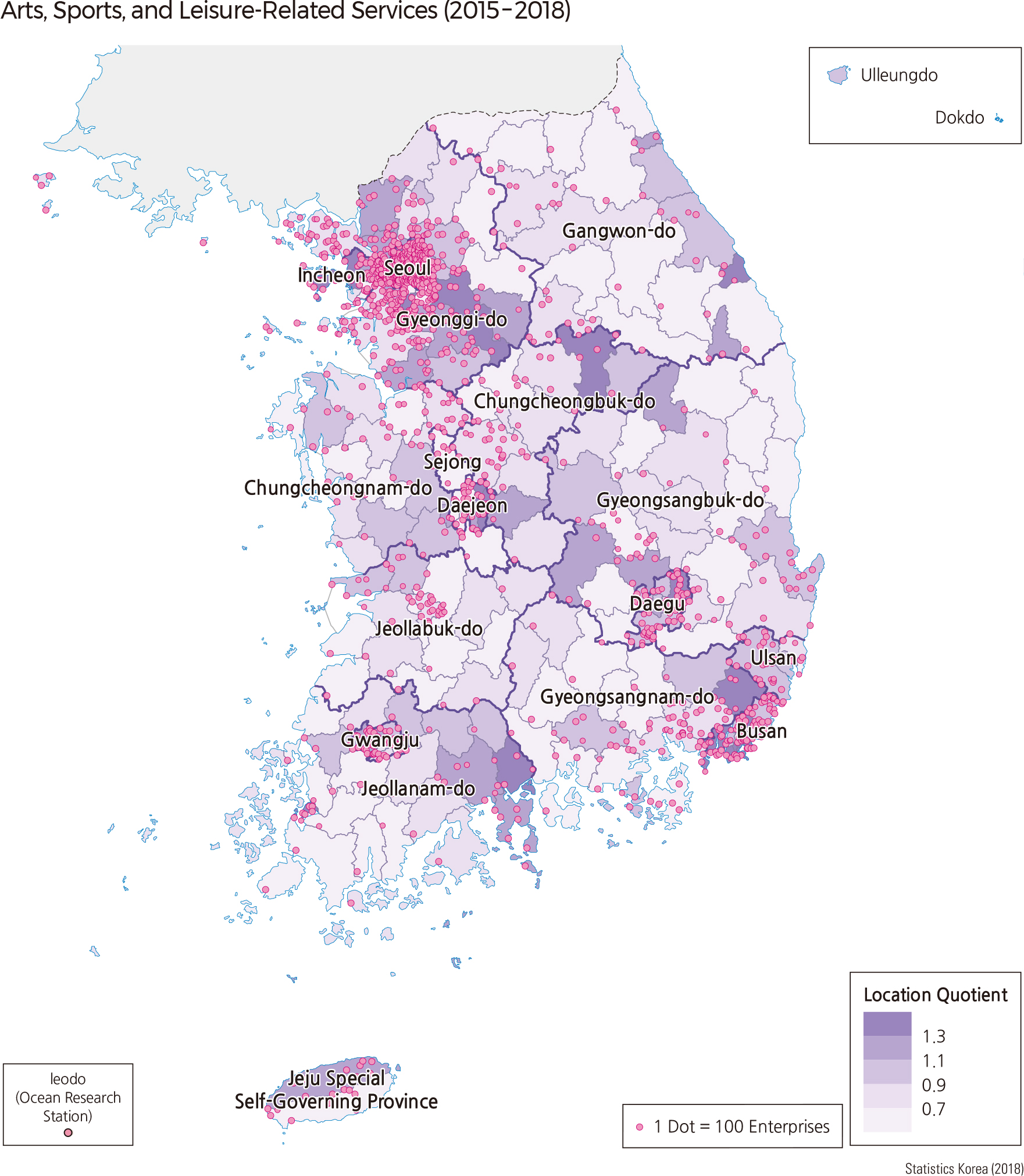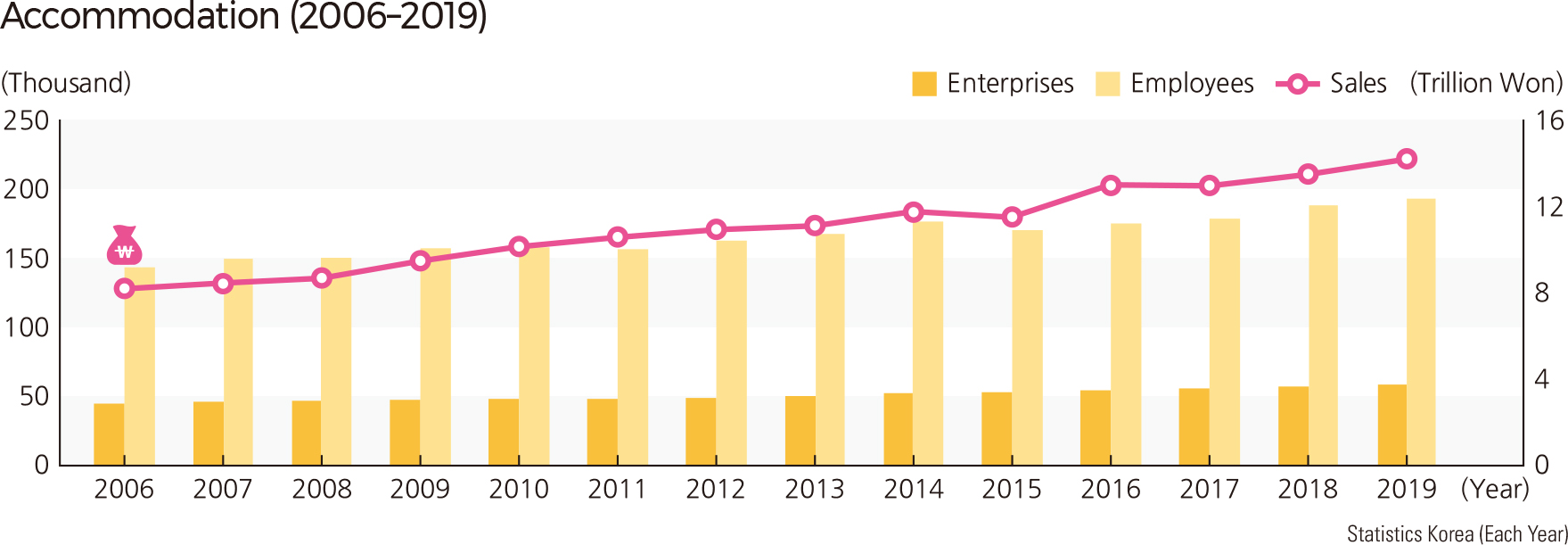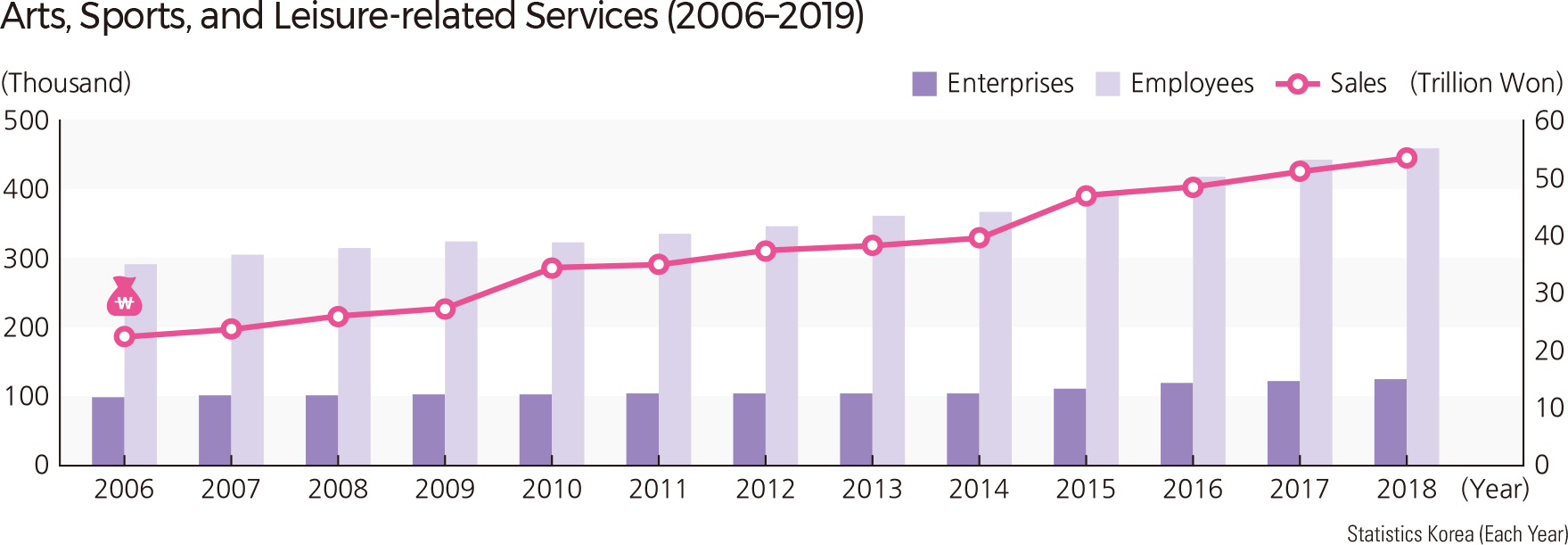English III 2021
Economic growth has increased the flow of goods and people between regions. The transportation industry transports passengers and cargo to benefit all its supporting businesses (e.g. warehousing and terminal facilities) and its management (e.g. logistics and distribution services). Like the tourism industry, the transportation industry is rather sensitive to economic fluctuations. In 2009, the momentary slowdown of the world economy depressed the transportation industry. The demand for transportation is higher in major cities with more demand for logistics distribution. Warehouses are usually in the suburbs or exurbs due to the higher land values and the traffic congestion in the hearts of cities. The number of short-term stays outside the home has increased along with the growth of business trips for inter-regional economic cooperation and leisure travels thanks to the five-day workweek. The lodging business is an industrial activity that provides short-term accommodations, campgrounds, and camping facilities of various types to the general public or members. Art, sports, and leisure-related service businesses include performing arts and stadiums, golf courses, ski resorts, and fitness facilities, including performing arts, self-employed artists, and performance facilities, libraries, museums, historic site management, zoos, botanical gardens, natural parks, swimming pools, bowling alleys, billiard room operation business, and other sports, leisure, and entertainment-related service businesses. The lodging industry, art, sports, and leisure-related service industries are concentrated in urban areas. However, they are also developed in rural areas with a demand for tourism, showing a more even distribution. |
